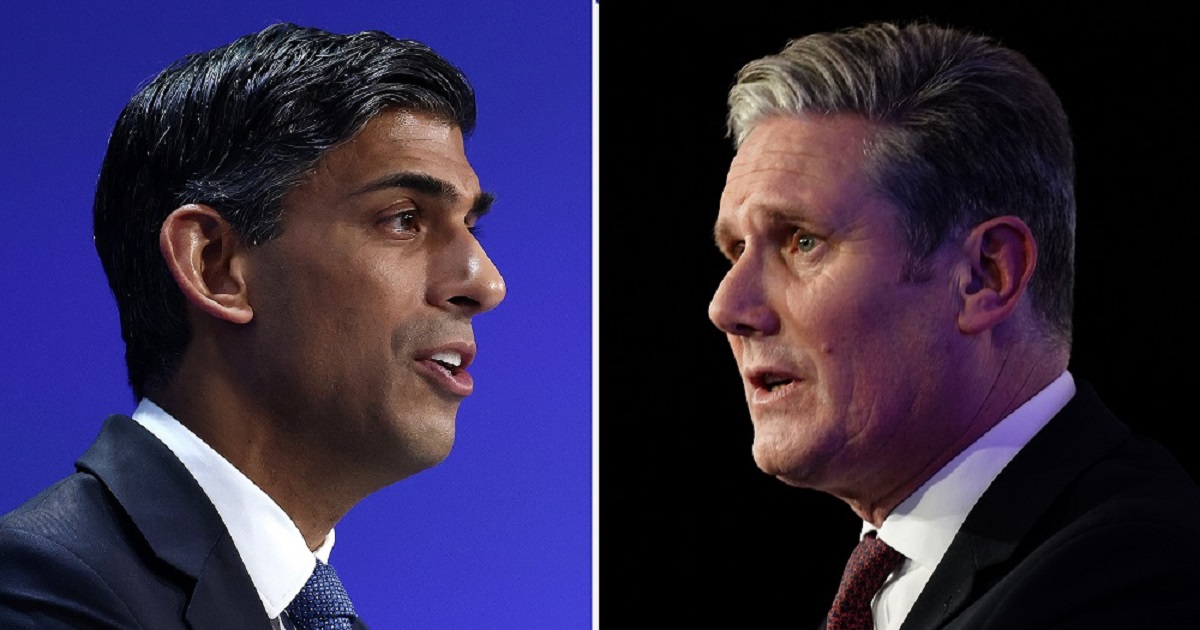‘Stark choice’ facing next government on public spending, says IFS

The next government faces a “stark choice” between making tax rises beyond their manifesto pledges, spending cuts or increased borrowing, according to the Institute for Fiscal Studies (IFS).
IFS director Paul Johnson said Labour and the Conservatives have maintained a “conspiracy of silence” on their spending plans and people will be voting in a “knowledge vacuum” at the General Election on July 4.
He also said Reform UK and the Green Party have helped to “poison the political debate” by suggesting their “radical reforms can realistically make a positive difference” when in fact their proposals are “wholly unattainable”.
Speaking at a manifesto analysis briefing in Westminster, Mr Johnson said taxes are at the “highest level ever” in the UK yet public services are struggling.
Public services
Mr Johnson said: “Despite the high tax levels, spending on many public services will, on current plans, likely need to be cut over the next five years unless taxes are raised further or government debt raises ever upwards.”
On how such a situation has emerged, Mr Johnson said: “The answer is in large part a £50 billion increase in debt interest spending relative to forecasts, and a pretty big growth in the welfare budget over the last few years.
“We’ve also got rising health spending, a defence budget which for the first time in decades is going to grow not shrink, and the reality of demographic change and the need to transition to net zero.
“Add in low growth and the after-effects of the pandemic and the energy price crisis and you’ve got a pretty toxic mix for the public finances.
“The two manifestos of the main parties essentially ignore these big challenges, these big facts mean that huge decisions over the size and shape of the state will need to be taken, that those decisions will, in all likelihood, mean higher taxes or worse public services.”
Spiralling debt
Mr Johnson said primary surpluses would be needed to stop debt spiralling upwards, explaining: “That means the government needs to collect more in tax and other revenues than it spends on everything apart from that debt interest bill.
“That’s not necessarily a recipe for a happy electorate. We’re taking more away than you’re giving back.”
Mr Johnson said both Labour and the Conservatives are committed to ensuring that debt is falling in five years time, adding it “really constrains” them.
He said: “Taking it seriously, and as far as one can tell both manifestos do take it seriously, will mean the painful choices we’re outlining, none of that are faced up to.
“Current plans in the budget are for big cuts in investment spending – £18 billion a year or so by 2030.”
Mr Johnson went on: “We’ve called this a conspiracy of silence and that has been essentially maintained.
“Regardless of who takes office following the General Election, they will – they might get lucky, but unless they get lucky – soon face a stark choice: raise taxes by more than they have told us in their manifesto or implement cuts to some areas of spending or break their fiscal rules and allow debt to rise for longer.
“That is the trilemma. What will they choose? I don’t know, the manifestos do not give us a clue.”
‘Mistake’
Mr Johnson said proposals by Labour and the Tories not to increase specific taxes or tax rates – known as tax locks – are a “mistake”.
He said: “They will constrain policy if a future government does decide it wants to raise more money to fund public services. They will also put constraints on tax reform.”
Turning to other parties, Mr Johnson said Reform UK and the Greens offer “much bigger number, very exciting radical policies”.
He said: “Of course they’re not going to be implemented because they’re not going to form the government.
“But I would suggest the way they suggest that their radical reforms can realistically make a positive difference, when in fact what they propose is wholly unattainable, does help to poison the political debate.
“It makes the other parties look feeble when you say ‘we could do all this stuff’. They can’t.”
Austerity
Responding to the IFS’ analysis, Plaid Cymru candidate for Dwyfor Meirionnydd, Liz Saville Roberts said: “The IFS confirms what Plaid Cymru has been saying all along – both Labour and the Conservatives’ manifestos clearly shows that a vote for either party is a vote for more of the same: austerity.
“Neither party are being honest with voters about the dire state of the economy, and the spending gap in both manifestos will mean that Wales’ could lose out on a billion or more.
“Plaid Cymru knows this isn’t as good as it gets for Wales. This election, we’re offering real change for Wales. We are the only party calling for fair funding for Wales to create economic and social fairness and build a fairer, more ambitious nation.”
Support our Nation today
For the price of a cup of coffee a month you can help us create an independent, not-for-profit, national news service for the people of Wales, by the people of Wales.






